Hamlet in Dobrogea
Gabrea faithfully follows Neagu's plot, who also wrote the film's script, transitioning from the old world to the new socialist one, while following the young man's tragic fate.
Adapted from "The Angel Cried Out", the debut novel of Fănuș Neagu, "Beyond the Sands” (1974, dir. Radu Gabrea) represents an intense Balkan saga with the elements of a road movie and coming-of-age story, set within the framework of a local film about communist resistance fighters. We witness the journey of Niculai (Dan Nuțu), from a child left orphaned after his father (suspected of communist affiliations, is killed by gendarmes), to his maturity as a young man wandering aimlessly, driven by a desire to avenge his father.
Gabrea faithfully follows Neagu's plot, who also wrote the film's script, transitioning from the old world to the new socialist one, while following the young man's tragic fate. Revenge and disillusionment remain constant themes throughout the film, dictating its underlying force, set against the bleak, swampy landscape near Brăila.


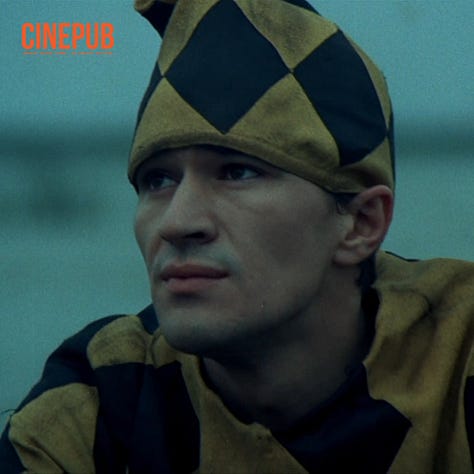

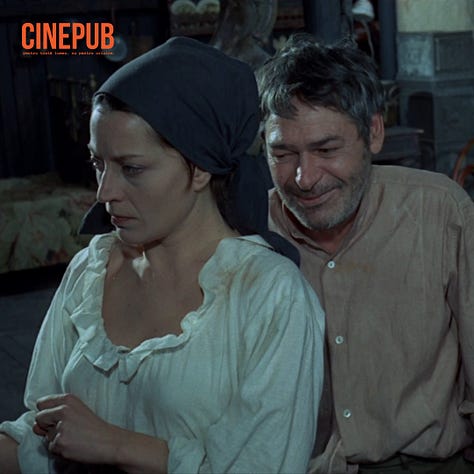

"Beyond the Sands" has something of the maximalist character of the epic films of that era, often engaging large choreographies of people or picaresque costumes. However, the balance is disjointed. The narrative focuses less on the central storyline and instead tries to establish a strong, deep atmosphere which, if not carefully controlled, could easily slip into hard metaphor. The film features a series of breathtaking images that convey the air, texture, humidity, and weight of the space and characters: Niculai, on horseback in the rain, watching horse thieves; the red flag raised among a crowd of peasants gathered around the communists in a field; the murder at the Epiphany gathering, and so on. These moments do not stand out as being inherently privileged over others; rather, they flow naturally and blend into a picturesque potpourri.
The lack of order in the narrative, composed of fragmented, sometimes carnivalesque events, gives "Beyond the Sands" both a modernist and unmistakably Balkan air. In this respect, it is reminiscent of films like Alexandru Tatos's ”Gently was Anastasia Passing” (1979), or the more radical attempts to experiment with cinematic techniques found in Mircea Săucan's "Meanders" (1966) or "100 Lei" (1973).
"Beyond the Sands" aims to be an experiential film, and we all know the difficulty of conveying experience. Less concise than "Gently Anastasia…”, more stylized than the standard films about illegal communist fighters, "Beyond..." stands out for its strange, doomed tone; for its portrayal of a marginalized community that, as the occasional voice-over suggests, slips past the wheel of history. Its main idea, one that is difficult to swallow, is the futility of Niculai's primary drive—his disillusionment with his obsessive desire for revenge, which is as dark as it is (paradoxically) the only positive impulse in his existence.
(Emil Vasilache, cinepub.ro)


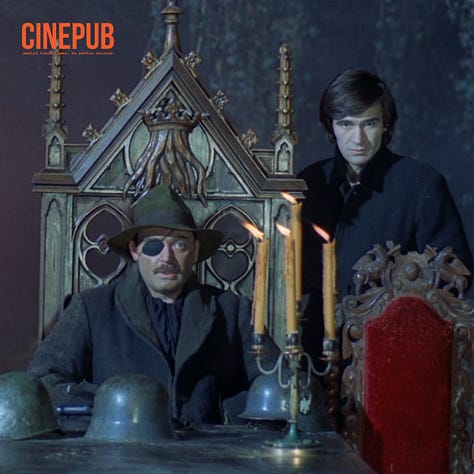



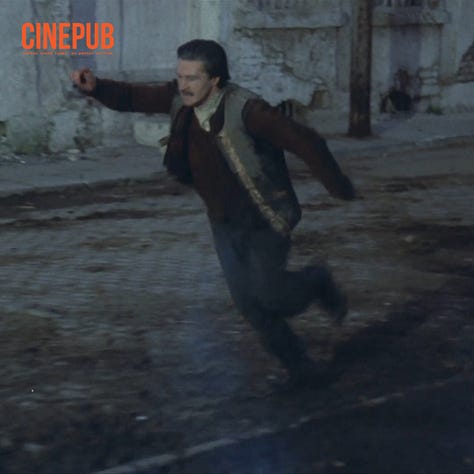
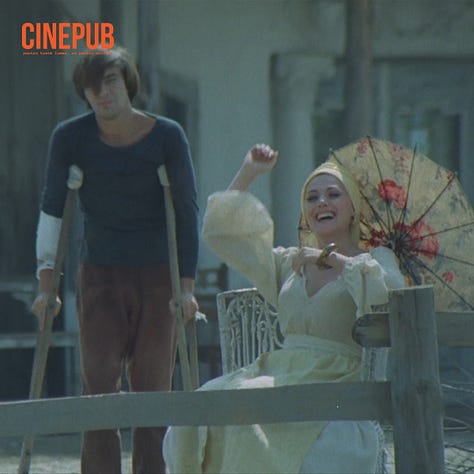

This week's premiere: Beyond the Sands by Radu Gabrea, Thursday, August 22nd, at 9:00 p.m EEST, on CINEPUB.RO
Cinepub is the one and only, legally operating and free of charge, AVoD platform, dedicated to the Romanian cinema: independent, contemporary, or classic. Our comittment to remain “free” means hundreds of monthly hours of volunteer work of a (very) small team of passionate individuals.
Your donation can help us cover some of the costs of securing some distribution rights, covering the basic costs or just keeping the platform updated; in a nutshell, to survive! If you like what we do, if you read what we write, if you watch the films we show, consider supporting us. We need your help. Thank you!



